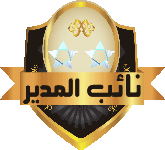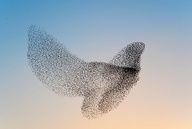 |
بتاريخ : 03-10-2014 الساعة : 02:24 PM
رقم
#1
 Is Islamic way of slaughter cruel?
Is Islamic way of slaughter cruel?
|
نائب المدير العام

|
UNDER the pretext of ‘Prevention of Cruelty to Animals’ the Western scholars have held that
Islamic way of slaughtering animals is gross cruelty. We shall see if their accusation confirms to the modern science or their opposition is simply a grudge to Islam.
? It is to be seen why at all Islam has enjoined on its followers to slaughter the animals
“Forbidden to you are the dead animals, blood, the flesh of swine,… and that which has been killed by strangling or by a violent blow, or by a headlong fall, or by the goring of horns, and that which has been (partly) eaten by a wild animal unless you are able to slaughter it.” (Qur’an; 5:3)
I have given only that part of the verse, which relates to the death of an animal without slaying it. The aforesaid verse carries some injunctions i the best interest of human health and welfare. Allah has forbidden eating the meat of cattle that has died on its own.
Imam Razi said, “When an animal dies of a natural cause the blood is blocked up in its veins and arteries, it gets badly degenerated and rotten. Eating its flesh is very much harmful.
Blood and its harms
Arab in the age of ignorance used to roast the intestines filled with blood and eat it. Allah forbade the believers to consume the blood poured forth from the animal in the process of slaying.
Now it has been established through modern research that the blood in the veins and arteries carries nutrient material to the tissue cells and brings back waste of tissue metabolism, which includes blood urea. These waste products are very harmful to the body and are removed from the blood when it passes through kidney. There is no denial of the kidney’s function, if the kidney fails the body fails. These waste products are thrown out of the body as a water solution, we call it urine. The urea being part of the blood, Hanafi jurisprudence considers blood as impure (najis).
Furthermore the blood carries organisms of various diseases. These organisms circulate in the blood without the body manifesting any symptoms of the disease, a condition called the sub-clinical infection. The meat of animal not slain contains much blood. If it is consumed there is a potential danger of contracting diseases produced through organisms in the blood. It is also agreed that consuming or sucking of blood is destructive of the pure human nature. Allah, therefore, not only prohibited the consumption of blood but also ordered us to slaughter the animal in a way to achieve the maximum extraction of the blood from its body.
Now the progress in our medical science enabled us to learn about the prohibition in eating the meat of all those cattle that have died either by strangling or falling from a height or have killed by the goring by the horns or partly eaten by the wild beast. In all these cases the blood gets blocked up in the veins and arteries etc. There is only one exception to the above rule that you make it pure by slaying it in the name of Allah before its soul departs its body. That can be done only if we find movement in the dying animal.
Is there cruelty in slaughtering?
After looking into the harms found by medical science in the consumption of blood, we shall examine the *******ion of the Western scholars who hold that cruelty is involved in slaying.
To judge what pain is felt by the animal undergoing a slaughtering operation under Islamic rule, we have to consider the following:
a) Probable pain in cutting the skin of the animal.
b) Probable pain in the wound of the neck.
c) Probable pain during bleeding.
d) Probable pain on convulsions.
We shall discuss the above points one by one.
a) In our day-to-day experience we cut our skin while we don’t feel the cut till the wound starts bleeding or hurting. One feels the pain only after the cut because the bleeding from the tiny capillaries is not severe enough to render him unconscious. The animal likewise will not feel the pain on the cutting of the skin by a very short knife.
b) Does the animal feel pain resulting from the cut in the neck? The answer is, no. The sharp knife while cutting the neck cuts open the four large blood vessels, as a result profuse quick loss of blood renders the animal unconscious. Any pain that the act of ‘zabh’ (slaughtering) may cause can be guessed by considering a similar operation of making a hole in the windpipe (TRACHEOTOMY) performed in cases of respiratory obstruction. This can be done under local anesthesia. However, it can be said that the pain from cutting the neck and the pain from wound in the neck associated with a massive hemorrhage shall not cause any pain. Further slaughtering in the Islamic way involves less than five seconds in case of a goat and less that 15 seconds in case of a cow. The sharp blade slides down very speedily on the neck and the profuse bleeding makes the animal immediately unconscious.
c) Blood flowing from the neck of the animal slain by Islamic method gives an impression of cruelty to those who are ignorant of the physiology of pain. The process of bleeding is pain-free and this can be ascertained by any blood donor. Furthermore, the animal’s unconsciousness deepens as the bleeding proceeds.
d) Convulsions occurring in the animal lying with an open neck and with blood around also imparts an impression of pain and suffering. The method used, therefore, seems cruel to the eyes of the onlookers who are unaware of the physiology of the convulsions. They should note that convulsions occur when the animal is unconscious. It is widely known that a human can be made unconscious by compressing the arteries from behind. In a wrestling match, we call it a sleeping whole. So if mere compression of carotid artery can produce unconsciousness, then section of both carotids induces unconsciousness very much faster. I have slaughtered many animals, hence I can say safely that the carotids are cut within five seconds in case of a goat and 15 seconds in case of a cow, and the same time is taken while slaughtering a camel.
The European countries use mechanical, chemical and electrical stunners. Stunning means to deprive the animal of consciousness by a blow. After stunning it takes minutes for brain death to occur.
The history of a half century of the use of this method tells us that there is not a single case that can be considered humane or safe in use. Electrical stunning has been shown to cause fracture in spinal column, pelvis or shoulder blades of animals The only beneficiaries of electric stunning are the meat industry working for a high turnover and greater economic advantage. But the method without a doubt is harmful as the animal dies of stunning before the maximum blood is extracted. Even it may die of stunning before the bleeding takes place.
The Muslims are not allowed to eat the meat of the animal died of stunning.
However, the medical science proved the authenticity of Islamic slaughtering, it being the safest method for consuming meat as profuse bleeding makes the meat harmless for human consumption.
يمكنك مشاهدة توقيعي بالنقر على زر التوقيع
|
 |
|




































المفضلات